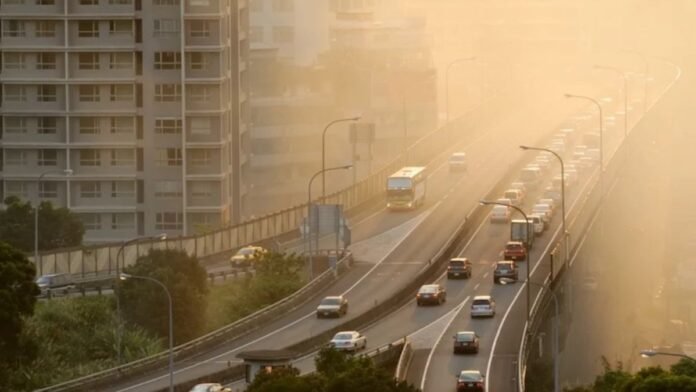As another season of polluted air settles across India, many parents find themselves worrying not just about coughs and colds, but about the growing danger that children face every time they step outside. Their bodies are still forming, their lungs are still developing, and they breathe faster than adults — all of which make them far more vulnerable to the toxic air filling our cities. The State of Global Air 2024 report reveals just how serious this has become, highlighting air pollution as the second leading cause of death among children under five in 2021.
With children spending more time outdoors and inhaling more air per kilogram of body weight, pollutants enter their systems quickly and stay longer. Studies show that exposure to PM2.5 and nitrogen dioxide can slow lung growth, increase the chances of asthma, and lead to frequent respiratory infections.
Numbers from a report paint a worrying picture. Nearly 43% of pollution-linked health insurance claims come from children aged 0 to 10 — a figure that makes this age group five times more affected than others. Pollution-related illnesses now account for 8% of all hospitalisations, showing how deeply the crisis is affecting young families.
Doctors in New Delhi say that during heavy pollution months, many children arrive with severe coughing, throat irritation, burning eyes, headaches, and unusual tiredness. Kids with asthma or allergies often experience flare-ups and need extra medical support. Some parents also notice that their children feel heaviness in the chest after playing outside or appear exhausted without doing much.
Medical experts warn that long-term exposure can affect lung development, reducing lung capacity as children grow older. Over time, it may raise the risk of chronic respiratory problems, allergies, and even heart-related issues. There is also growing concern that prolonged exposure to polluted air may impact concentration and learning abilities. This makes it even more important to reduce outdoor activity during high pollution days, improve indoor air quality, and strengthen children’s immunity with proper nutrition.
While we cannot change the outdoor air overnight, we can take small, meaningful steps to safeguard children — especially as Children’s Day reminds us to prioritise their well-being. Parents can begin by checking the Air Quality Index before letting kids play outside and avoiding outdoor activities when pollution peaks.
Improving indoor air is equally important. Everyday activities like cooking, using strong cleaners, burning incense, or lighting candles can release harmful gases and irritants. Using exhaust fans, choosing low-chemical products, and avoiding smoke indoors can make a major difference. A good-quality air purifier with HEPA and carbon filters also helps ensure cleaner air where children sleep, study, and play.
Keeping the home clean matters too. Dust, pollen, and allergens often settle into carpets, sofas, and fabrics, so regular cleaning and vacuuming with a HEPA-filter machine can help reduce triggers. Teaching kids simple habits like washing up after coming home, staying hydrated, and changing clothes after outdoor play can also protect them from prolonged exposure. Adding indoor plants can offer a sense of freshness and support overall well-being.
Pollution may be a challenge we face every year, but the way we respond can shape a healthier future for our children. Small steps, taken consistently, can make a real difference in helping them breathe safer, cleaner air.



